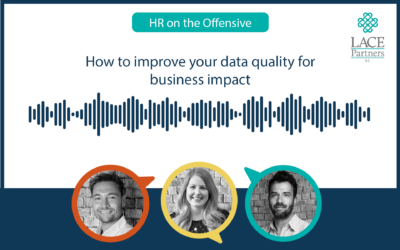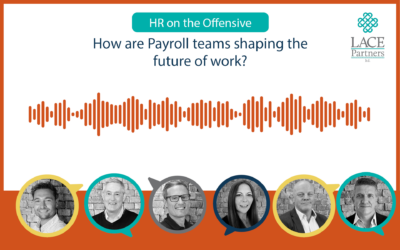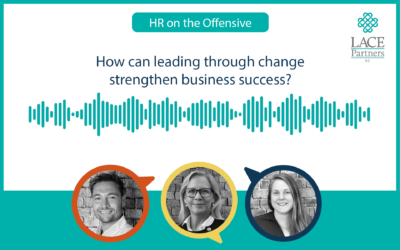We’ve seen plenty of changes in how businesses are adapting in 2020. The events this year have brought about a definite shift in organisations’ priorities. In particular, the ‘Black Lives Matter’ movement brought a step-change and refocus for many businesses, bringing diversity and inclusion to the forefront of discussion. Have the political events of this year provided a catalyst for lasting changes within organisations?
We spoke to Mehdi Tounsi from OpenSesame to find out what they have been doing to drive this agenda. This is a transcription of some of the key points from the HR on the Offensive podcast series, the weekly LACE Partners podcast looking at all things HR, addressing the issues that HR professionals are debating and discussing as part of the latest thinking.
You can listen to that podcast and the others in the ongoing series here.
We have been on quite an interesting journey as an organisation. We are headquartered in Portland, Oregon and one of the interesting slogans that you hear about Portland – because of its liberal perspective and values – is “keep Portland Weird”. I mention this particular slogan because for us as an organisation, we have always prided ourselves on being inclusive and of having those similar values that Portland people honour and hold dear, which we’ve held for many years. Workplace flexibility, no dress code, etc. These were all approaches that as a business we have had for many years.
The platform we developed in the eLearning space evolved from who we are as a business and we structured our content accordingly. We had six core categories that defined the type of our content and we produced a lot of diversity and inclusion training materials that slotted in to one of these categories: Compliance. We decided to revisit that category this year and I think this reflects a lot of the mindset shift we’ve seen on how businesses view diversity and inclusion in the workplace. It has historically been seen as a compliance measure; an approach that required a business to have diversity and inclusion policies, training, approaches to recruitment in place because it was a risk mitigation exercise.
The events of this year and particularly with the Black Lives Matter movement caused us to rethink how diversity and inclusion should be viewed; not as a compliance or risk management approach, but as something that is fundamental in demonstrating that you truly believe that what you are doing is making a difference to equality in the workplace. It is something that adds genuine value to a business. It is no longer a ‘tick box’ exercise.
We wanted to recognise that diversity and inclusion needs a better profile, a more positive profile, which is why we changed our categories and decided to define diversity and inclusion learning materials as stand-alone categories in its own right. But not only that, we needed to show that it matters to us, which is why we also gave it priority in the way it is displayed in our materials.
Now, if you are working with OpenSesame you will see a platform that gives diversity and inclusion a priority. We have a top-level category called Diversity, Equality and Inclusion, including resources that cover everything from unconscious bias to inclusive leadership. We have hundreds of different resources in this space but we know we need to keep doing more to champion diversity and inclusion and that is why we’ve also hired a dedicated resource expert to drive our library of content.
That sends the right message to our customers and helps to demonstrate our commitment to championing equality in the workplace. It is us doing our bit.
We’ve also spent time as a business trying to champion our role in society too, and if you’d like to read about some of the work we are doing in the education space you can visit our Racial Justice page on our website.
Where does this go next? For me, with the younger generations entering the workforce and their ‘non-negotiables’ of what they want from their employers shifting from traditional expectations, I think we will see diversity and inclusion given even more prominence. Leadership will be key and as the next generation of leaders have a mindset of increased inclusivity and, as a result, the ability to upskill that through learning platforms will I think be key.
If you would like to talk to OpenSesame about their approach to Diversity and Inclusion then reach out to Mehdi direct. If you’d like to see how eLearning platforms fit into your future tech roadmap then get in touch with LACE Partners at info@laceparters.com.






